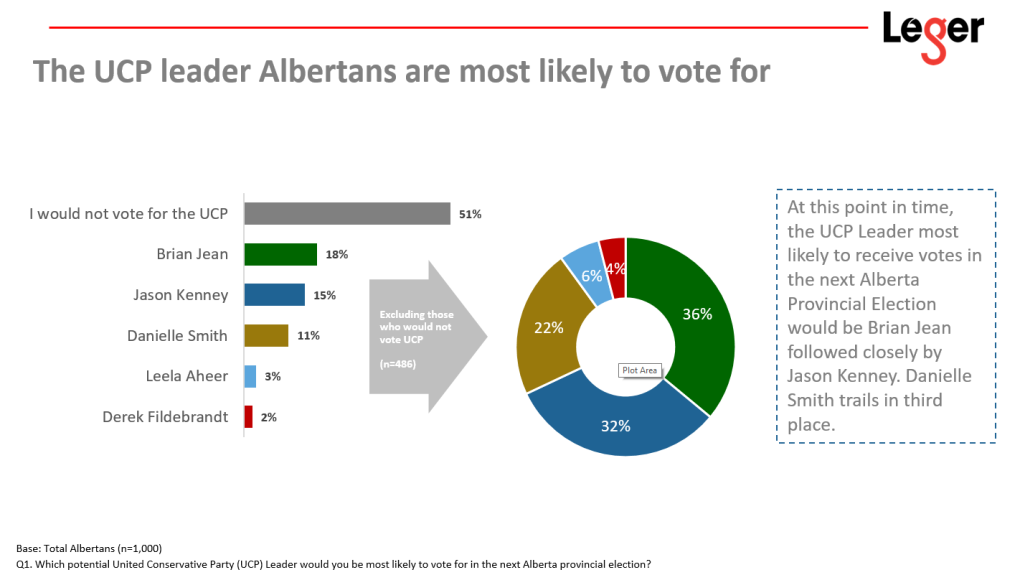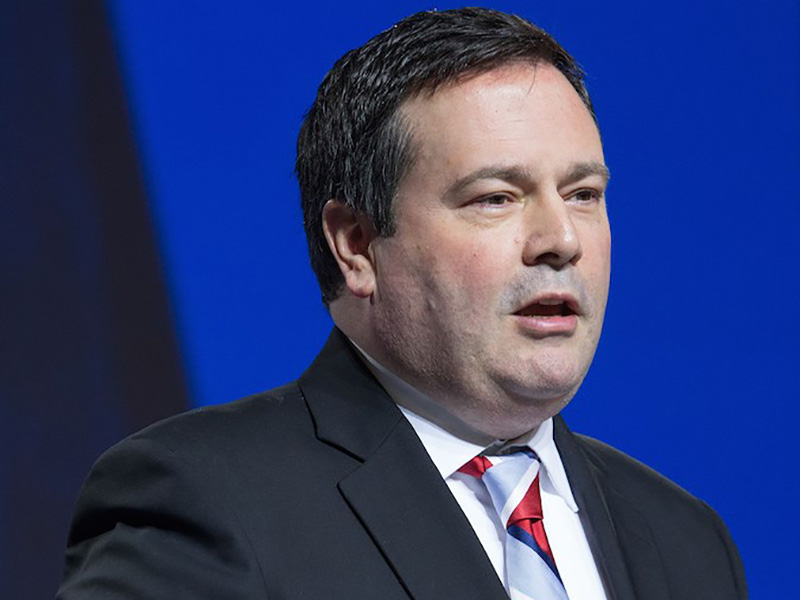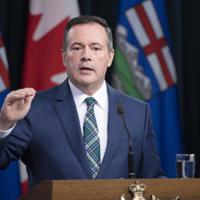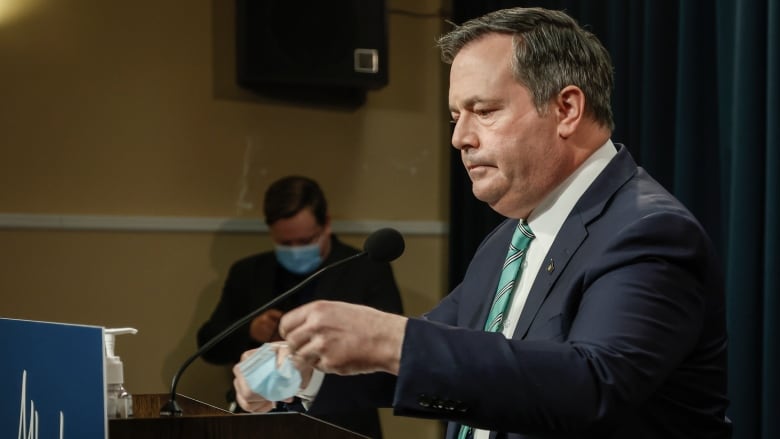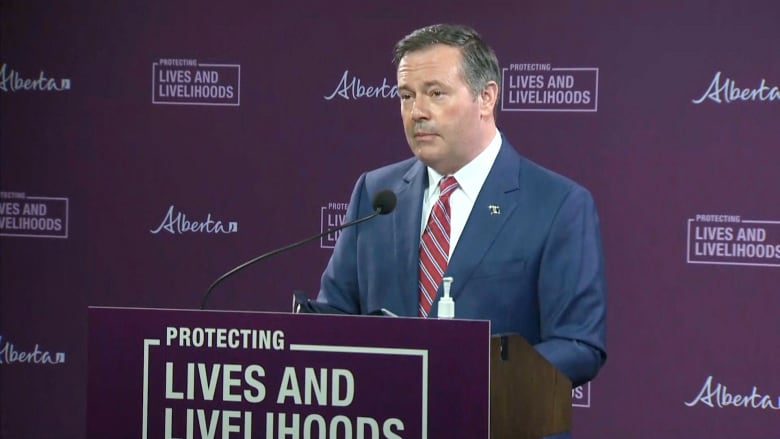Braid: Major decisions on Kenney critics are looming for the UCP
At the legislature, MLAs understand that any criticism of Premier Jason Kenney or the government will freeze them out of committees and legislature debates or statements.

Article content
The usually rambunctious UCP has fallen oddly silent since the recent party convention in Calgary.
Advertiseme
But it doesn’t mean there’s a peace treaty.
At the legislature, MLAs understand that any criticism of Premier Jason Kenney or the government will freeze them out of committees and legislature debates or statements.
The most vocal recent critics, MLAs Leela Aheer from Chestermere-Strathmore and Airdrie-Cochrane member Peter Guthrie, seem to be biding their time, waiting to see what happens in the next few weeks.
Plenty is happening already.
There’s a fierce background battle over the UCP nomination in Fort McMurray-Lac La Biche, where former Wildrose Leader Brian Jean is up against Joshua Gogo, who has no critical word for Kenney.
The riding is open because UCP member Laila Goodridge resigned to run successfully for the federal Conservatives.
Advertisement
Article content

Jean has said that he’ll return to the legislature to give Kenney’s opponents some spine. He wants the premier to resign.
Kenney says he will endorse Jean “100 per cent” if party members choose him as a candidate.
That’s easy to say, because Kenney’s supporters have no intention of letting Jean win this nomination.
Brian Jean as an official UCP candidate would be a huge symbolic defeat for Kenney. It would imply that UCP members who want him out have a wide base in the province.
There aren’t many Canadian premiers — certainly not this one — who would tolerate a former leadership competitor in their caucus as a declared member of an internal opposition party.
And so, Kenney’s people are striving to short-circuit Jean before he gets started. Some 370 new UCP members were signed up by Gogo’s backers and submitted by the final cutoff date.
Advertisemen
Jean’s campaigners feel they have majority backing based on his long record in federal and provincial politics and based on his support for the community.
This is the setup for tense in-person voting to be held Dec. 11 in Fort McMurray, and the next day in Lac La Biche.

Predictions in a situation like this are a mug’s game. But I would say, based on Kenney’s long record of winning backroom fights, that Jean has a less-than-even chance.
Even before that nomination vote, the party itself has a major decision to make.
Next week, probably on Dec. 6 or 7, the UCP board will rule on the 22 riding resolutions demanding a leadership vote by March 1. The party can’t simply ignore this and doesn’t intend to. Demanding a leadership vote with identical resolutions by 22 or more ridings is guaranteed in the party constitution.
Article con
“If they think they can just push this aside, they’re completely wrong,” said one participant who wants an early vote. “This would be far from over.”
The party has already agreed to a leadership review in early April as part of an annual general meeting advanced by several months.
For many dissidents, a bigger sticking point than the date is the manner of balloting.
They want a provincewide vote of all members that would have to be conducted virtually.
They also demand independent scrutiny of both the voting and the results by an outside accounting firm.
That demand is a legacy of the notorious 2017 UCP leadership contest that saw controversy over contributions, voting and the so-called kamikaze candidacy of Jeff Callaway. Mistrust lies heavy on the party to this day.
Advertisement
Article content

For the party board, accepting the riding resolutions as legitimate appears to be a slam dunk — outright rejection would cause a revolt.
But the board will also say, most likely, that while the ridings can rightfully force a vote, only the elected board can set the date or the rules.
It’s possible the balloting might be moved into March as a concession, but this is no sure thing. The decisions haven’t yet been made.
Best guess of the outcome? Kenney wins a leadership review held with in-person voting and sails on to the next election.
At that point the UCP’s dissidents, with no formal options left, would have a choice: fade away or burst into an uprising that makes all the earlier ones look tame.
Don Braid’s column appears regularly in the Herald
Twitter: @DonBraid
Facebook: Don Braid Politics
Brian Jean preferred as UCP leader over Jason Kenney, Danielle Smith: Leger poll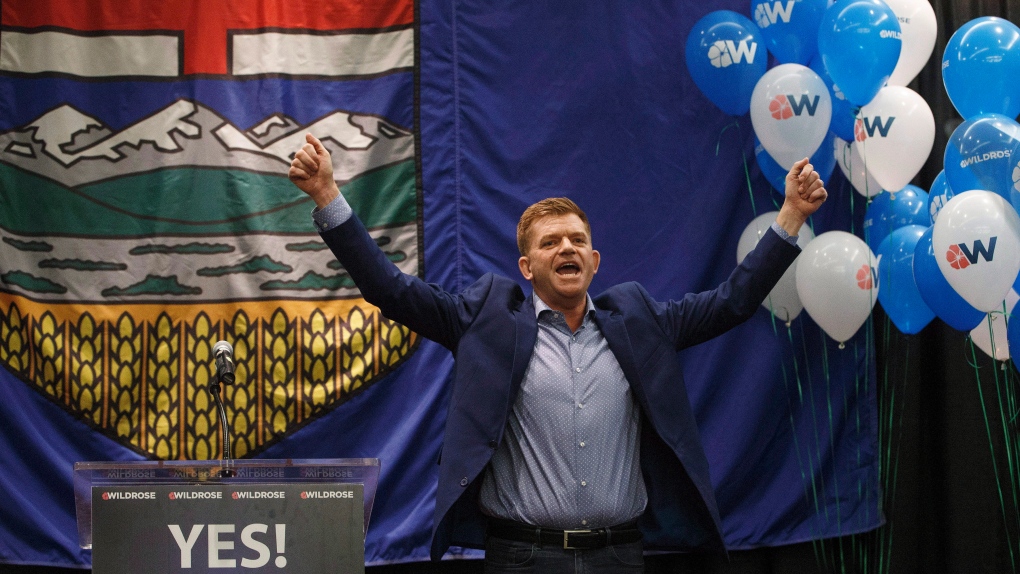
Sean Amato
CTV News Edmonton
Published Dec. 3, 2021
EDMONTON -
Albertans are more likely to vote for Brian Jean than Jason Kenney or Danielle Smith, a new Leger poll shows.
Jean has support from 18 per cent of Albertans, the premier is preferred by 15 per cent and former Wildrose leader Smith polled at 11 per cent.
A slight majority of Albertans, 51 per cent, said they would not vote for the UCP under any leader.
RELATED STORIES
Kenney says his confidence is high as UCP AGM wraps up
'This is my party': Jean insists UCP will be crushed by NDP unless Kenney is gone
Kenney suggests Jean will be allowed to run, questions his 'commitment and reliability'
"These poll results show that public mood in Alberta has shifted decisively against the United Conservative Party, most likely as a result of the way the governing party has handled the unprecedented COVID-19 crisis," said Remi Courcelles from Solstice Public Affairs, the company that commissioned the poll.
"A change in leadership won’t necessarily solve all of the UCP’s problems. That being said, it would appear that a UCP led by Brian Jean would improve the party’s electoral fortunes."
Regionally, Kenney was preferred in Calgary, he and Jean are tied in Edmonton but Jean was favoured 23 per cent to 15 per cent for Kenney outside of the big cities.
Kenney has struggled in polls throughout the pandemic, with an Angus Reid survey recently pegging his popularity at 22 per cent.
The UCP tossed two MLAs who criticized Kenney, roughly 25 per cent of its constituency associations are demanding an early leadership review and the governing party has finished second in some fundraising races to the NDP.
Jean – who lost a provincial election to Rachel Notley's NDP in 2015 as leader of the Wildrose Party – has publicly asked for Kenney's resignation and said he could do a better job of leading the UCP.
"If he doesn't leave we are going to have an NDP majority," Jean said in November.
"The UCP will not be in competition. It won't be competitive in the next election. That's very concerning to me."
Jean is attempting to win a UCP nomination and a by-election to become the MLA for Fort McMurray-Lac la Biche.
Kenney has publicly questioned Jean's reliability to finish his term and his commitment to the UCP.
Smith has expressed interest in the job as well, but has not launched a campaign.
Kenney will face a UCP leadership review in April 2022, if not sooner.
The online survey was conducted between Nov. 16-29. It had a sample size of 1,000 adult Albertans. The method of polling was a non-probablity sample, so no margin of error can be associated.
